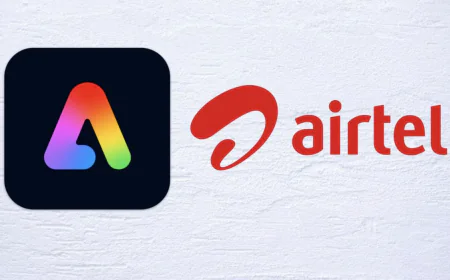Which Health Insurance Is Best For People Over The Age Of 30?
Choosing the best health insurance plans for those over 30 involves balancing coverage, affordability, and additional benefits to ensure comprehensive protection against evolving health risks and financial stability.

With age comes change in health needs and therefore it is important to have a good health insurance plan. In particular, the selection of a proper health insurance plan is critical for people who are older than 30 years to be ready for unpredictable medical costs. The right plan can give one a sense of security knowing that one can seek medical attention without having to worry about the huge bills that come with it.
This article explores what makes a health insurance plan the best for those above 30 years of age, the considerations, types of plans, and features to consider when choosing the plan.
Why Health Insurance is Essential after 30
Want to get your story featured as above? click here!
Want to get your story featured as above? click here!
In the third decade, people have more obligations in their lives, including family, work, and financial issues. Besides these, health risks can also begin to emerge more clearly. Some of the diseases that are associated with the lifestyles include hypertension, diabetes, and other chronic diseases which may start manifesting themselves in this age group, and therefore, they may require frequent check-ups and possibly treatment.
A best health insurance plan can:
- Cover Medical Expenses: Since the risk of getting sick or having an accident also rises with age, a good health insurance policy assists to cater for hospital charges, doctor visits, operations, and other related expenses.
- Protect Savings: A medical emergency is a sure way of emptying your pockets. Health insurance protects your money by paying for major medical costs.
- Provide Preventive Care: Most of the health insurance policies provide for preventive care which includes routine check-ups, tests, and immunizations.
- Support Mental Health: Other benefits of the contemporary health insurance plans include mental health care since stress-related problems may increase after 30.
Key Considerations When Choosing Health Insurance Plans
Choosing the right health insurance plan requires the consideration of several factors that correspond to your health requirements, your ability to pay for the insurance plan, and your future plans. Here are some critical considerations:
1. Coverage Amount
The coverage amount or the sum insured is the maximum amount of money that your insurance company will be willing to pay in the event of a claim. If you are above 30 years of age, it is recommended that you take a higher coverage amount if you have a family. The medical costs have been increasing gradually and a higher sum insured can help in preventing the effects of inflation.
2. Premium Costs
It is always good to go for a plan with a small premium but one should not compromise on the coverage. Lower premiums may mean that the insurance company covers fewer treatments, has higher deductibles or co-payment terms that may lead to increased out of pocket expenses in case of a medical crisis. Assess your financial position and select a plan that provides adequate coverage at an affordable rate.
3. Network Hospitals
The insurance provider’s list of affiliated hospitals is also an important consideration. Make sure that the plan you select has a large number of affiliated hospitals, preferably in your locality or your working place. This network should comprise hospitals that provide cashless services whereby the insurance company pays the hospital’s bill. Having a broad network means that in case of an emergency or any other time that one needs quality health facilities, they are easily accessible.
4. Pre-Existing Conditions Coverage
In case you have any chronic diseases, it is necessary to read the terms and conditions of their treatment. All the health insurance policies have a waiting period for the pre-existing diseases which can be from 2-4 years. Select a plan with a shorter waiting time if you have frequent treatments for such illnesses.
5. Maternity and Childcare Benefits
For those who are planning to start a family, it is wise to choose health insurance policies that include maternity and child care cover. These plans can include maternity expenses such as the cost of delivery, the care of the newborn, and even immunisation. Remember that maternity benefits are usually accompanied by a waiting period so it is advisable to do some calculations.
6. No-Claim Bonus
No Claim Bonus (NCB) is a discount given by the insurance companies for not raising any claim in the policy year. It often takes the form of an enhanced sum insured without extra premiums. For people above 30 years, this feature is useful because it allows improving the coverage over the years, if you are a healthy person and do not have to make claims often.
7. Lifetime Renewability
As the health risks rise with age, it is important to select a health insurance plan that has a lifetime renewal option. This means that you can go on with your coverage without any limitations of age as you grow old.
8. Additional Riders
Most insurance companies have extra endorsements that can be added to the basic policy to increase the coverage. These may include critical illness cover, accidental death cover, hospital daily cash, and more. For individuals who are above 30 years of age, it is possible to get additional riders that will help in enhancing the coverage of certain risks that may not be fully catered for by the basic plan.
Types of Health Insurance Plans
It is important to know the various health insurance plans that are available in the market so as to make a wise decision. Here are some common types:
1. Individual Health Insurance Plans
These plans afford protection to a single individual. They are suitable for people who have no dependents and who wish to be covered according to their health status. The sum insured is for the policyholder only, and therefore it is suitable if you anticipate that you will require moderate health care services.
2. Family Floater Plans
Family floater plans are those in which the whole family is covered under a single sum insured amount. These plans are cheap and offer you and your dependents, including your spouse, children, and sometimes parents, a cover. The sum insured is divided among all the members, which makes it ideal for families that may have different health requirements.
3. Group Health Insurance Plans
Group health insurance plans are typically offered by employers to their employees. These plans are advantageous as they usually provide coverage at a lower premium due to the group policy. However, they may not offer comprehensive coverage, and the policy might lapse if you change jobs or retire.
4. Senior Citizen Health Insurance Plans
These plans are specifically designed for individuals above the age of 60. While they might not be immediately relevant for those in their 30s, it’s worth considering them for your parents. These plans typically offer higher coverage for age-related ailments but come with higher premiums.
5. Critical Illness Plans
Critical illness plans provide a lump sum payout upon diagnosis of a specified critical illness such as cancer, stroke, or heart attack. These plans are beneficial for those who want additional coverage for serious health conditions that require expensive treatments.
Features to Look for in the Best Health Insurance Plans
To choose the best health insurance plan, it’s essential to consider features that offer comprehensive protection and convenience. Here are some key features to look for:
1. Cashless Hospitalisation
Cashless hospitalisation allows you to receive treatment at a network hospital without having to pay upfront. The insurance company settles the bill directly with the hospital. This feature is particularly useful during emergencies when arranging funds quickly can be challenging.
2. Room Rent Limits
Some health insurance plans impose limits on room rent, which can affect your choice of hospital rooms. Opt for a plan with higher or no room rent limits to avoid paying out of pocket for a better hospital room.
3. Daycare Procedures
With advances in medical technology, many procedures now require less than 24 hours of hospitalisation. Ensure that your health insurance plan covers a wide range of daycare procedures.
4. Restoration Benefit
The restoration benefit automatically reinstates the sum insured if it gets exhausted during the policy year. This feature is particularly beneficial for families or individuals who might face multiple claims in a year.
5. Preventive Health Check-Ups
Many health insurance plans offer free annual health check-ups as part of their coverage. This feature encourages regular monitoring of your health, which is vital for early detection and treatment of potential health issues.
Conclusion
Choosing the best health insurance plan after the age of 30 is a crucial step in safeguarding your health and financial well-being. By carefully considering factors such as coverage amount, premium costs, network hospitals, and additional benefits, you can select a plan that aligns with your health needs and financial goals. It’s essential to stay informed and regularly review your policy to ensure that it continues to meet your needs as you age. Remember, the best health insurance plan is one that provides comprehensive coverage, peace of mind, and flexibility to adapt to your changing healthcare needs.



































.jpeg)



































































































